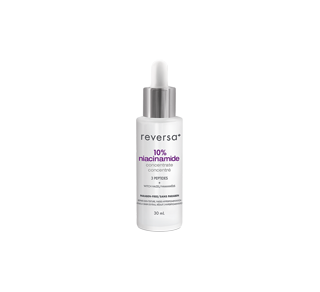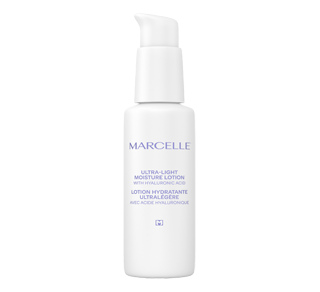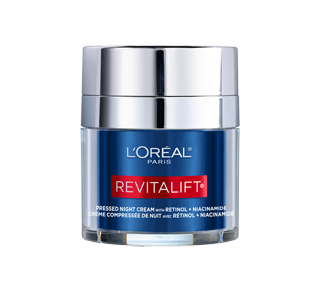Niacinamide is an increasingly popular ingredient. Like retinol or vitamin C, it offers distinct benefits for your skin's health. Read on and discover everything you need to know about niacinamide.
What exactly is niacinamide (nicotinamide)?
Niacinamide, also known as vitamin B3 or nicotinamide, interacts with substances that are naturally present in your skin to help reduce the appearance of dilated pores, even out your skin tone, smooth fine lines and wrinkles, boost radiance and even strengthen your skin’s natural barrier.
Niacinamide is safe for skin conditions like acne, rosacea or dermatitis, and it can also help reduce the damage to your skin caused by environmental pollutants.
The use of niacinamide for your skin
Adding niacinamide to your skincare routine has a number of benefits. Among other things, it can help:
- reduce dark spots and age spots by evening out your skin tone;
- reduce the appearance of fine lines and wrinkles by boosting collagen production;
- improve your skin’s natural barrier by increasing the production of ceramide;
- reduce the appearance of pores by regulating sebum production.
What role does niacinamide play?
Niacinamide works by boosting the production of collagen, which helps your skin maintain its tone and elasticity. Niacinamide also helps maintain the health of your skin’s natural barrier by increasing the production of ceramides, which are naturally occurring fats that help your skin retain moisture.
How to add niacinamide to your routine
Niacinamide is used in a wide variety of skincare products like serums, creams, lotions and more. Whether you use them alone or in combination with other active dermatological ingredients, you simply need to find the ideal formula to complement your daytime or nighttime skincare routine.
For maximum benefits, apply niacinamide all over your face and simply leave it on. If you prefer using pure niacinamide, apply it immediately after washing your face, before you apply any other facial-care products.
Niacinamide or hyaluronic acid?
Niacinamide and hyaluronic acid can be used together, as both are ideal ingredients for your skin care. In fact, they are complementary ingredients offering effective ways to help fight the signs of aging. Niacinamide is better for improving the structure and overall appearance of your skin, while hyaluronic acid is especially useful as a moisturizer.
Niacinamide or salicylic acid?
These two ingredients can also be combined to treat a number of skin conditions at once. Salicylic acid, on its own, is often used to treat acne or blackheads by exfoliating the skin and removing dead skin cells.
Niacinamide or vitamin C?
Recent research has shown that vitamin C and niacinamide can be used together effectively, in a complementary manner. Vitamin C is particularly beneficial as an antioxidant, to help brighten your complexion or neutralize the free radicals that contribute to the aging of your skin.
Niacinamide or retinol?
Known primarily for its anti-wrinkle properties, retinol (which is an active form of vitamin A) is an effective dermatological ingredient that can be used with niacinamide to complete your skincare routine, both day and night. Niacinamide is best used during the day, while retinol is best used before going to bed. Note: make sure you use retinol gradually, as this ingredient can have drying effects on more sensitive skin.



